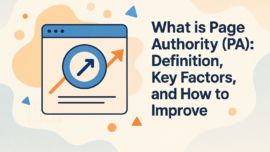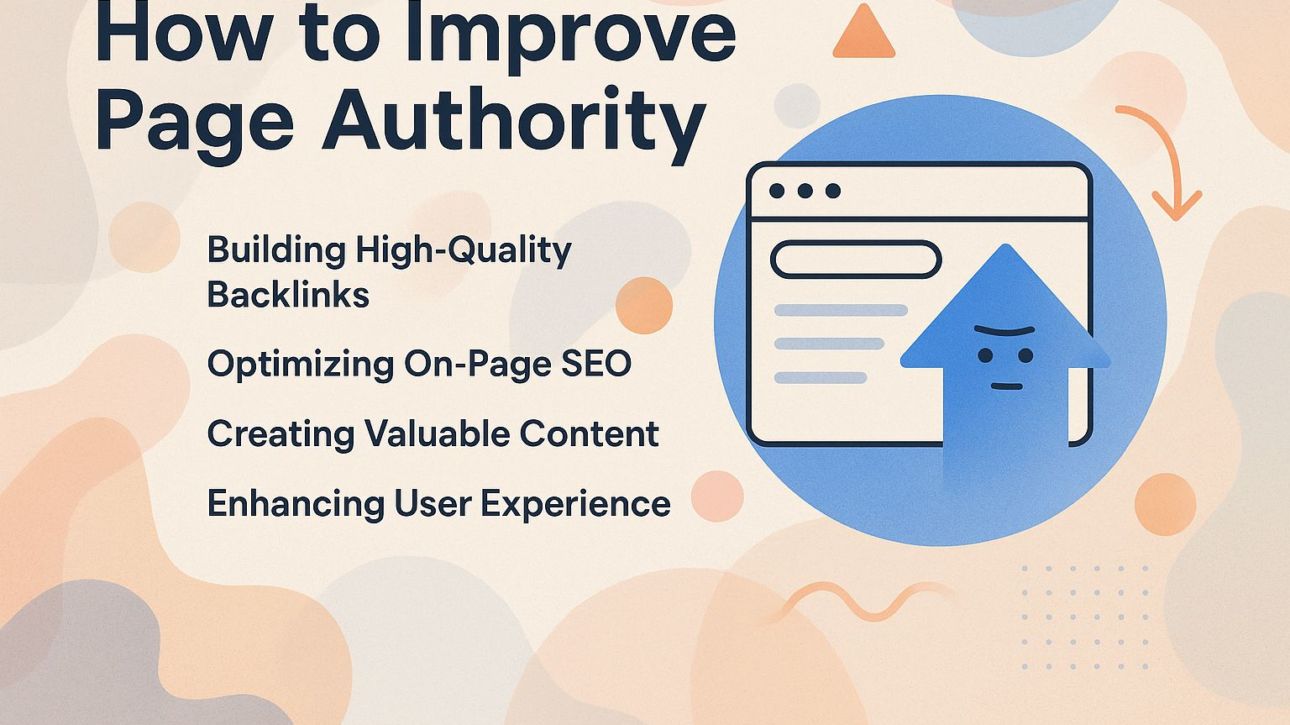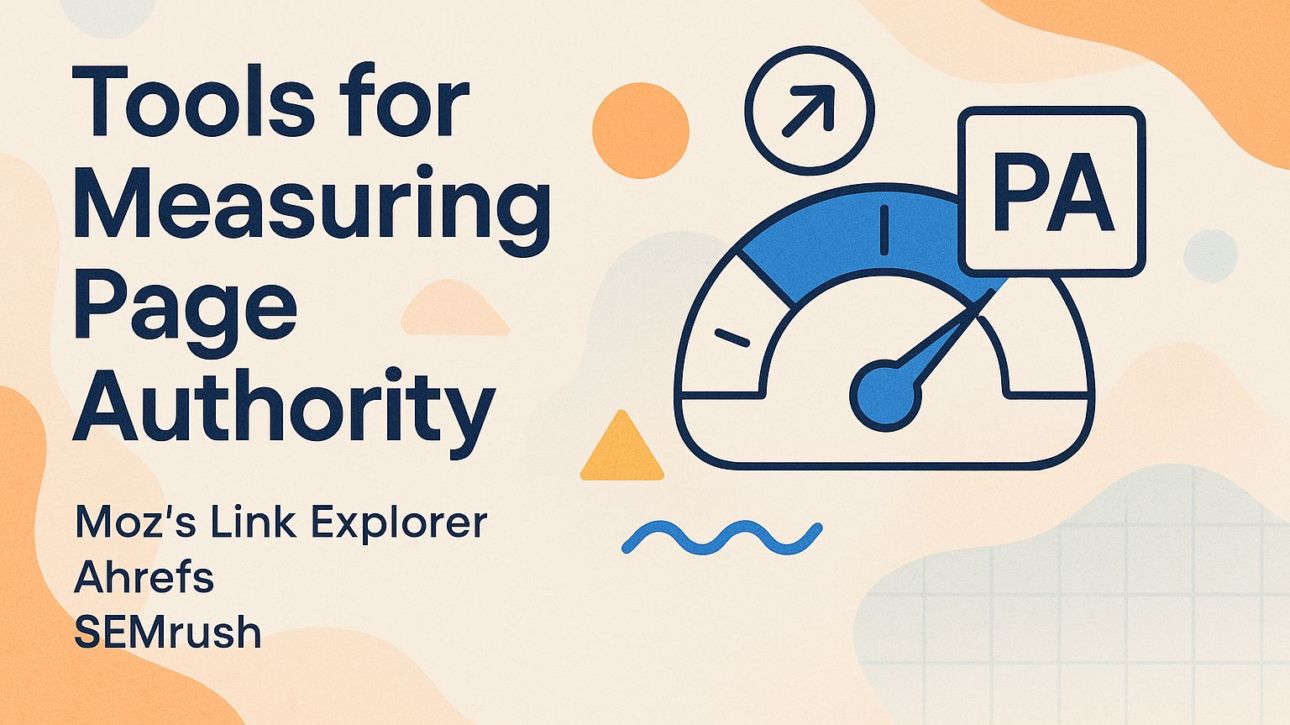
Knowing how Page Authority (PA) works can greatly improve your website’s ranking in search results on platforms like Google. This metric, closely tied to Domain Authority, evaluates the likelihood of a specific page ranking well based on factors like link quality and keyword ranking. In this article, we’ll explain what Page Authority is, look at what affects it, and give useful advice on how to make your site perform better. Get ready to increase your online presence!
Key Takeaways:
- Page Authority is an important measure in SEO that shows how reliable and strong a webpage is.
- The key factors influencing Page Authority include link profile strength, content quality, social signals, and user engagement metrics.
- To raise Page Authority, concentrate on getting good backlinks, improving on-page SEO, making helpful content, and making the site easy to use.
Contents
- Definition of Page Authority
- Key Factors Influencing Page Authority
- How to Improve Page Authority
- Tools for Measuring Page Authority
- Common Misconceptions about Page Authority
- Frequently Asked Questions
- 1. What is Page Authority (PA) and why is it important?
- 2. How is Page Authority (PA) defined by Moz?
- 3. What are the key factors that influence Page Authority (PA)?
- 4. How can I improve my Page Authority (PA)?
- 5. Is Page Authority (PA) the same as Domain Authority (DA)?
- 6. How often does Page Authority (PA) change?
1. Importance of Page Authority in SEO
Knowing Page Authority is important for marketers; a higher PA can improve visibility and bring more organic traffic.
A study by Moz revealed that websites with a higher Page Authority score enjoy up to 50% more organic traffic compared to those with lower scores.
To increase your Page Authority (PA), work on getting quality backlinks from well-known sites, fine-tune your on-page SEO, and create useful content.
Tools like Ahrefs and Moz can help you track your progress. Writing guest posts and working with influencers can improve your reputation, attract more visitors, and increase your search engine rankings. Additionally, worth exploring are strategies to maximize your SEO budget by embracing AI search and emerging tools for an effective strategy, which can complement efforts to boost Page Authority.
2. Overview of Metrics Used in SEO
SEO encompasses various metrics, including Page Authority and Domain Authority, which help measure a website’s power in search results. These measurements are important for knowing how your site might do compared to others.
Page Authority (PA), ranging from 1 to 100, predicts a page’s ranking potential based on factors like link quality and count. Conversely, Domain Authority (DA) assesses a whole domain’s strength.
Tools like Moz have an easy-to-use dashboard for monitoring these metrics, while SEMrush lets you compare your performance with industry standards.
Regularly check these metrics to change your SEO approach and improve visibility, which will lead to more organic traffic. For those interested in advanced strategies, exploring Unlocking the Power of Agentic SEO for Executives could provide valuable insights.
Definition of Page Authority
Page Authority is a scale from 1 to 100 that measures how well a webpage is likely to rank in search results, based on its backlinks and other elements.
1. What is Page Authority?
Page Authority is more than a number; it shows how well a page might do in search engine rankings, affected by various elements.
To calculate Page Authority (PA), Moz employs a machine learning model where key indicators include link profile, trustworthiness, and the relevance of linking domains. A higher PA suggests that the page is more likely to achieve better rankings.
For effective SEO strategies, regularly monitor and analyze your PA alongside competitor pages. Use tools like Moz Pro or Ahrefs to monitor changes in PA over time. This helps you improve your content approach and increase backlinks, leading to more organic visitors to your site.
2. How Page Authority is Measured
Page Authority is measured through a complex scoring algorithm that evaluates link quality, quantity, and relevance.
To assess Page Authority effectively, focus on both the number and strength of backlinks pointing to your site. Focusing on getting excellent links from important websites can greatly improve your score.
Use tools like Moz’s Link Explorer to check your backlink profile and look at metrics such as Domain Authority (DA) and Page Authority (PA).
Do regular checks to find and remove bad links that might lower your ranking to improve your backlink profile.
Key Factors Influencing Page Authority
Many key factors influence Page Authority, which search engines use to judge the significance of a webpage. An often overlooked aspect that affects Page Authority is link decay, where outdated or broken links can diminish a site’s credibility.
1. Link Profile Strength
The strength and diversity of a page’s link profile are critical in determining its Page Authority score.
A well-planned method for building links can greatly increase your Page Authority. Sharing articles on well-known websites in your field creates links to your site and enhances your brand’s reputation.
You might start by identifying five authoritative blogs relevant to your field and propose unique content ideas that offer value to their audience.
Tools like Ahrefs or Moz can help analyze your competitors’ backlinks, enabling you to target similar opportunities. Regularly checking your progress will help you create a varied and effective link profile.
2. Content Quality and Relevance
Good content that matters helps improve Page Authority, as search engines focus on giving users important information.
To create engaging content, concentrate on three main strategies:
- Use tools such as SEMrush or Ahrefs to find popular topics by researching keywords extensively.
- Make sure your content covers these keywords in a way that feels natural and interesting, while offering special ideas or answers to people’s questions.
- Track performance numbers like bounce rate and average time on a page using Google Analytics. Change your content based on this data to keep users interested and increase Page Authority.
3. Social Signals
Increased social signals can contribute to higher Page Authority, as engagement on social media reflects content value to both users and search engines.
Research indicates that articles posted on social media can see an increase in traffic by up to 20% in the first week. To make the most of this, create content that people will want to share by using interesting visuals, infographics, or catchy headlines.
Tools like BuzzSumo can help find popular topics in your area, so you can create posts that match. Regularly engaging with your audience on platforms like Twitter and Facebook can also improve interaction rates, driving more traffic back to your site and enhancing your overall Page Authority.
4. User Engagement Metrics
User engagement metrics, such as bounce rate and time on site, significantly affect Page Authority by indicating content effectiveness.
To measure and improve user engagement, start by utilizing tools like Google Analytics. Track key metrics such as average session duration, bounce rate, and pages per session.
If you notice visitors leaving some pages soon after arriving, consider changing the content or speeding up the page loading time. Tools like Hotjar can show where users click most by using heatmaps.
Engaging content like polls or quizzes can make people spend more time on your website and make their experience more enjoyable.
How to Improve Page Authority
Increasing Page Authority needs a plan that improves different SEO elements and how users interact with the page. To optimize these elements effectively, understanding the role of outbound links can be crucial (our guide on outbound link best practices covers their definition, importance, and application).
1. Building High-Quality Backlinks
A strong plan for building links that targets getting high-quality backlinks is important for effectively increasing Page Authority.
To start, consider guest blogging on reputable sites in your niche. Identify target blogs using tools like Ahrefs or SEMrush to assess their domain authority.
Next, contact them with a customized proposal that describes your skills and possible subjects you could cover. Engage in influencer outreach by connecting with industry leaders on social media.
Invite them to help you make content or talk to them for your blog, which will give you important links back to your site. Regularly monitor your backlinks to see which methods work best, and change your approach when necessary.
2. Optimizing On-Page SEO
Improving on-page SEO elements like titles and meta descriptions can greatly help in increasing Page Authority.
To improve your on-page SEO, begin by adding target keywords naturally into your titles and meta descriptions. Use tools like SEMrush for keyword analysis to find the best phrases for your content.
Next, make sure headers (H1, H2) are organized logically and contain important keywords. Improve your images by giving them clear filenames and descriptions in alt text.
Keep your content engaging and informative, around 1,500 words, to encourage longer dwell times. Use internal linking to guide users to related content, improving user experience and SEO ranking.
3. Creating Valuable Content
Creating helpful and necessary content that meets what users want is a fundamental way to increase Page Authority.
To increase Page Authority, write detailed articles that address particular questions or issues your readers encounter. The HubSpot blog gained more visitors and trust by publishing detailed guides on inbound marketing, which turned into important resources for users.
Tools like SEMrush can help identify low-competition keywords for your niche. Write at least 1,500 words for each article. Include pictures and make sure they look good on phones to improve user experience.
Regularly update your content based on current trends to maintain its relevance and authority.
4. Enhancing User Experience
Improving user experience with a well-organized website layout can increase Page Authority and keep users on the site longer.
A key part of UX and SEO is how fast the site loads; slow sites usually cause more visitors to leave quickly. Use tools like Google PageSpeed Insights to see how quickly your website loads and get suggestions for improving its speed.
Making sure your website works well on mobile phones is important because more than half of all internet visits worldwide are from these devices.
Use tools like Bootstrap to make sure your website works well on any device. Concentrate on reducing image sizes and storing them in the browser’s memory to speed up web page loading and improve user satisfaction.
Tools for Measuring Page Authority
Several tools can precisely assess Page Authority, providing details about link profiles and the general SEO status. For those interested in the most effective tools, our analysis on how Moz has been crowned as a leading SEO software offers valuable insights into top solutions recognized by industry analysts.
1. Moz’s Link Explorer
Moz’s Link Explorer offers thorough data on links, authority ratings, and analysis of competitors for any website.
This tool lets users check a site’s link profile, which is very useful for SEO plans. Link Explorer has a subscription available for $99 each month. It provides an easy-to-use interface and strong features like filtering by overlapping domains or viewing links that have been lost over time.
Unlike its competitors, it provides extensive historical data, helping users identify trends and opportunities. The keyword difficulty metrics enable you to prioritize targeting based on authority scores, enhancing your overall content strategy.
2. Ahrefs
Ahrefs is another powerful tool for measuring Page Authority, renowned for its extensive backlink database and user-friendly interface.
Ahrefs subscriptions start at $99 each month. You can choose from different plans that include tools for researching keywords, checking website health, and analyzing competitors.
Users benefit from its reliable backlink checker, which updates data every 15 minutes, ensuring accuracy.
When comparing Ahrefs to Moz, Ahrefs typically excels in data accuracy and depth, particularly in backlink profiles.
For example, Ahrefs can track over 14 trillion links, while Moz affords a more user-friendly interface but may lag in data freshness. This makes Ahrefs a top tool for SEO experts looking for detailed information on competitors.
3. SEMrush
SEMrush brings together SEO measurements and competitor analysis, helping users understand their Page Authority compared to their rivals.
SEMrush provides users with thorough reports on organic traffic patterns and competitor tactics. Users can monitor their Page Authority (PA) by reviewing backlink reports and checking keyword positions.
For example, by using its Keyword Magic Tool, you can find effective keywords and improve your content plan. SEMrush provides competitive position tracking, helping users monitor fluctuations in PA and traffic over time, which is essential for adjusting your SEO tactics effectively. This method helps make well-informed choices to improve how search engines view your content.
Common Misconceptions about Page Authority
Even though it’s important, many people have wrong ideas about Page Authority, which can lead to poor SEO plans.
1. PA vs. Domain Authority (DA)
Many confuse Page Authority (PA) with Domain Authority (DA), but they serve different purposes in SEO metrics.
Page Authority (PA) gauges the predictive rank of a specific page based on link data, while Domain Authority (DA) reflects the overall strength of an entire domain.
PA is influenced by factors like internal links and the quality of backlinks to that particular page. In contrast, DA takes into account the entire backlink profile of the domain.
For example, if you want to focus on a keyword, review the Page Authority (PA) of each landing page to improve them, while also keeping track of your site’s Domain Authority (DA) to understand its overall SEO strength.
2. The Impact of PA on SERP Rankings
Knowing how Page Authority affects SERP rankings is important for planning successful SEO campaigns.
Higher Page Authority (PA) often correlates with better search engine results placement (SERP). For instance, a case study by Moz revealed that sites with a PA above 50 typically rank on the first page for competitive keywords.
To improve your PA, focus on obtaining high-quality backlinks from reputable sites. Tools like Ahrefs and SEMrush can help find ways to get more backlinks. Using methods like guest blogging can also improve your link profile.
Create content consistently and engage with users to build trust over time.
3. Recap of Key Points
In summary, improving the quality of links, ensuring content is relevant, and encouraging user interaction can greatly improve Page Authority.
- To implement these strategies, begin by assessing your current backlinks using tools like Ahrefs or Moz to identify low-quality links. Replace them with high-quality ones from reputable sites.
- To make your content relevant, match your topics with what your audience cares about. Use tools like AnswerThePublic or Google Trends to see what people are interested in.
- Increase user interaction by using features like polls and quizzes, or by being more active on social media.
- Regularly evaluate these metrics to see improvements in your Page Authority over time.
Frequently Asked Questions
1. What is Page Authority (PA) and why is it important?
Page Authority (PA) is a metric developed by Moz that predicts how well a specific page will rank on search engine results pages (SERPs). It is important because it helps determine a page’s visibility and potential for ranking high in search results.
2. How is Page Authority (PA) defined by Moz?
Moz defines Page Authority (PA) as a logarithmic scale from 0 to 100 that measures the predictive ranking strength of a single page. A higher PA score means a better chance of ranking on SERPs.
3. What are the key factors that influence Page Authority (PA)?
The key factors that influence Page Authority (PA) include the quantity and quality of inbound links to a page, on-page optimization factors such as keyword usage and content relevance, and the overall trustworthiness and reputation of the website.
4. How can I improve my Page Authority (PA)?
To increase your Page Authority (PA), work on getting good links to your page from well-known and related websites. Make sure your content is focused on specific keywords and regularly post trustworthy and high-quality content to make your website more credible.
5. Is Page Authority (PA) the same as Domain Authority (DA)?
No, Page Authority (PA) and Domain Authority (DA) are two separate metrics developed by Moz. While PA measures the ranking potential of a single page, DA measures the overall authority and trustworthiness of a website’s entire domain.
6. How often does Page Authority (PA) change?
Page Authority (PA) can change anytime since it measures your page’s current authority. Factors such as changes in inbound links or website updates can affect your PA score, so it is important to regularly monitor and work on improving it.



